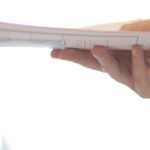Generative AI tools, such as the popular chatbot ChatGPT, are increasingly being deployed in business school admissions, with candidates using them to help compose the written parts of their applications, including their MBA essays.
The stakes are high in MBA admissions, especially for the coveted spots in the top-tier Online MBA programs. Crafting a compelling application is crucial for prospective students. However, experts warn that AI should be used with caution, if at all.
Rebecca Loades, director of MBA programs at ESMT Berlin, which runs an Online MBA, says that using AI tools “is acceptable” if it enables the applicant to present an authentic portrait of themselves.
“From an admissions point of view, ESMT values originality and personal expression in application materials, as we seek to understand the unique experiences, perspectives, and skills that each candidate brings to the table.”
She believes that generative AI can help candidates brainstorm and draft application essays. “It can generate ideas, structure the narrative, refine the language used, and synthesize professional experiences and personal stories into cohesive and compelling essays,” Loades says. “And, irrespective of your English language level, it can improve grammar and tighten essays.”
‘Applicant catfishing’ and authenticity
However, ESMT has noticed that it can hide the prospective student’s voice, resulting in essays that lack authenticity and feel slight “off” when you read them. “This becomes even more apparent when an applicant is interviewed and inconsistencies in vocabulary, tone and ‘voice’ become apparent, [known as] applicant catfishing,” says Loades.
“The interview helps us learn more about each applicant and determine if they really are whom they portray in the application,” she adds.
Other business schools agree that AI tools can be helpful, in terms of equalising access to those without very strong written communication skills.
“They can help provide language and framing and bring the equivalent of professional editing help to everyone, in a sense levelling the playing field with regards to having access to such help,” says Balaji Padmanabhan, a professor at University of Maryland’s Robert H. Smith School of Business, in the US.
“However, it is your responsibility to ensure that the narrative in these essays properly reflects your lived experiences -- and end up conveying what you, as an applicant, feel you want people who read your essays to walk away with.”
Be wary of plagiarism
He warns that applicants to Smith’s Online MBA program should be aware of the potential risks, including plagiarism. “There is evidence that in some cases generative AI tools end up lifting entire sub-sections from previously published content. Doing so without proper acknowledgement in most cases will likely constitute plagiarism,” says Padmanabhan.
“That could happen in your case if these tools are given carte blanche rights to draft essays,” he adds. “Claiming you didn't do it yourself, or that your AI tool did it, will not absolve you of responsibility. Everything you submit will remain on the record.”
His advice is use these AI tools not to create application content from scratch, but to develop your content first and then refine, if permitted by the institution you’re applying to. “That is, provide your best starting point and have these tools directionally improve it using prompts such as ‘improve the grammar of this draft’ or ‘improve the formatting of this resume’,” Padmanabhan says.
Furthermore, he calls for disclosure of all AI use in your application. Indeed, ChatGPT has ignited fears among business schools that MBA students will use it to cheat in their essays, prompting calls for clear disclosure policies.
“Admissions committees’ AI policies are still taking shape, but the words plagiarism and fraud feature prominently in most of them. Adcoms want to know how the applicant thinks and writes, not how ChatGPT thinks and writes,” says Alex Collazo at the admissions consulting firm Admissionado.
He “strongly discourages” his clients from using AI in their applications to business schools, warning that it could result in an application being rejected in some cases. “A successful application essay has to stand out from the crowd, but AI is the crowd,” says Collazo. “These tools generate a mish-mashed average of the internet’s writing. By definition, to get into a school with a single digit acceptance rate, average doesn't cut it.”
AI detection software
He adds that money is pouring into AI detection tool development. “The most dangerous thing for someone contemplating this strategy is that the tech is changing rapidly. A person could think detection tools have a low success rate, so they won't get caught, but that percentage could increase dramatically in the months between their submission and when the adcom runs it through their programs.”
While he cautions against using AI, business schools do see some legitimate uses for them, so long as applicants can they strike a balance between leveraging technology and preserving the human touch in their application essays. “We want to learn about you. Use it to brainstorm and as a sparring partner for ideas, but remember to stop at a certain point and let your authentic voice be heard,” concludes Loades, at ESMT.










